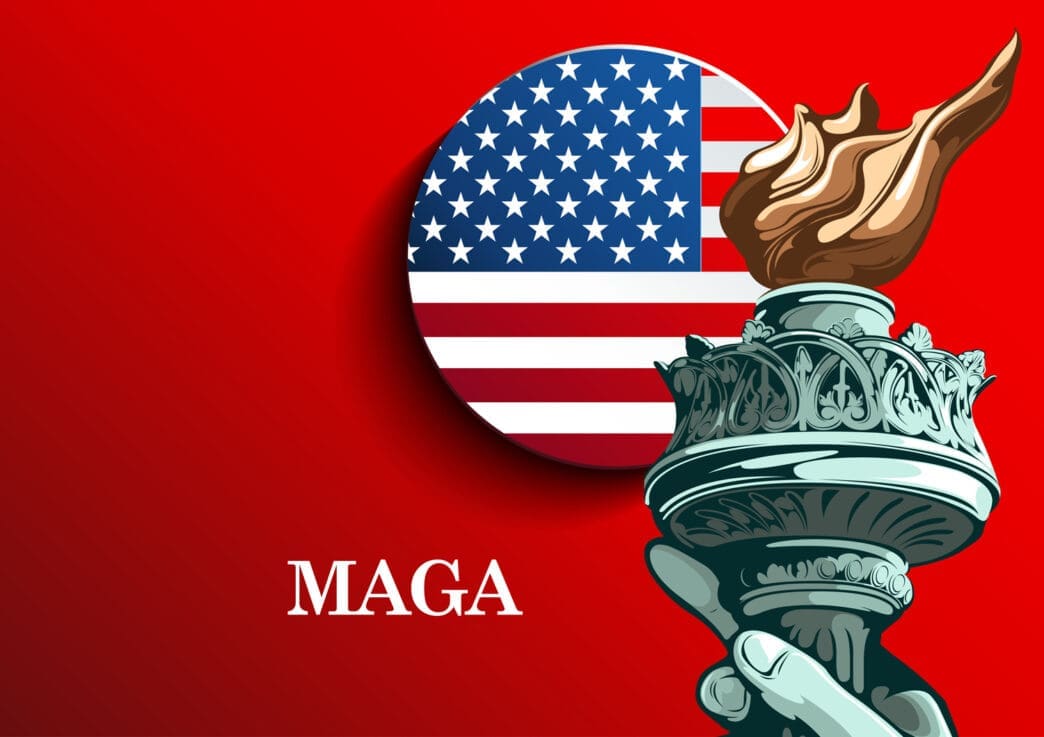WASHINGTON – President Donald Trump’s long-standing “America First” promise to keep the United States out of “endless wars” is facing its most significant challenge yet as the escalating conflict between Israel and Iran divides his most ardent supporters. The recent Israeli airstrikes on Iranian nuclear and military targets have exposed a deep schism within the Make America Great Again (MAGA) movement, pitting traditional pro-Israel hawks against a growing chorus of anti-interventionist voices.
The crisis began to unfold after Israel launched a significant military operation against Iran, targeting key nuclear facilities and high-ranking military officials. This move came despite President Trump’s public calls for a diplomatic resolution and ongoing nuclear negotiations with Tehran. While Trump initially stated he did not want Israel to act militarily, he later praised the “successful” strikes, leaving his supporters to grapple with his seemingly contradictory stance.
This ambiguity has fueled a fierce debate within the MAGA base. On one side, influential figures like conservative commentator Mark Levin lauded the Israeli offensive, declaring on Fox News, “The Iranians are about to get their asses kicked.” This sentiment reflects a more traditional Republican hawk viewpoint that sees Israel as a crucial ally and Iran as a primary threat.
A Promise Tested
The MAGA Divide on Intervention
Voices Against Intervention
- Tucker Carlson
- Senator Rand Paul
- Charlie Kirk
- Rep. Marjorie Taylor Greene
Voices For Supporting Israel
- Mark Levin
- Senator Lindsey Graham
Potential Consequences of Escalation
Oil Price Projections
US Public Opinion on Foreign Wars
US Military Presence in the Middle East
However, a powerful and vocal segment of Trump’s base, which propelled him to power on his anti-war platform, has reacted with a mixture of anger and betrayal. Leading the charge is Tucker Carlson, who argued that US involvement “would be a middle finger in the faces of the millions of voters who cast their ballots in hopes of creating a government that would finally put the United States first.” He went further, stating, “Drop Israel…let them fight their own wars.”
This sentiment is echoed by other prominent MAGA voices. Charlie Kirk, a staunch Trump ally, revealed that his followers are “overwhelmingly against Israel doing this,” with a poll of his 5 million X followers showing that almost 90% oppose American involvement in the conflict. Senator Rand Paul also urged restraint, writing, “No war with Iran. The Neocons latest plan must be opposed.”
The division highlights a generational and ideological shift within the conservative movement. Younger conservatives, more aligned with the “America First” principles, are questioning the “special relationship” with Israel, arguing that it should not supersede American interests. They fear being dragged into another costly and protracted Middle Eastern conflict, a sentiment that resonates with a broader American public weary of “forever wars.”
The economic ramifications of a wider conflict are also a significant concern. The Israeli strikes have already caused a spike in global oil prices, with analysts predicting a jump to $100 a barrel if the conflict escalates, a scenario that could have a devastating impact on the US economy.
President Trump now finds himself in a precarious position. His attempts to project an image of a peacemaker who can also be decisive on the world stage are being tested. His administration’s next steps will be closely watched by his divided base and could have a profound impact on his political future and the direction of the Republican party.














